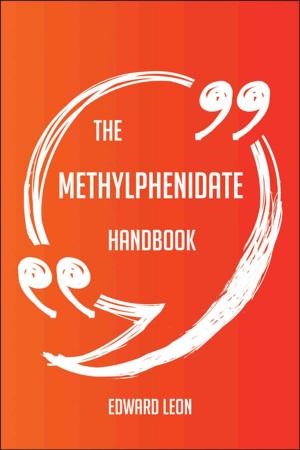History of the Decline and Fall of the Roman Empire - The Original Classic Edition
Nonfiction, Reference & Language, Reference, Social & Cultural Studies, Social Science, Fiction & Literature| Author: | Gibbon Edward | ISBN: | 9781486412280 |
| Publisher: | Emereo Publishing | Publication: | October 24, 2012 |
| Imprint: | Emereo Publishing | Language: | English |
| Author: | Gibbon Edward |
| ISBN: | 9781486412280 |
| Publisher: | Emereo Publishing |
| Publication: | October 24, 2012 |
| Imprint: | Emereo Publishing |
| Language: | English |
Why, then, is The Decline and Fall of the Roman Empire timeless? The author wasnt a post-modernist man trapped in an Enlightenment body; Gibbon had no conception of social history or archeology, his 18th century idea that climate affects morality is long out of date, and his analyses of the Middle East are hampered by his reliance on second-hand sources. But in 200 years no one has seriously challenged the framework Gibbon used to explain the fall of the empire. In fact, contemporary histories of Rome still owe a great deal to him.
Why? One reason is his careful use of documents. Decline and Fall relies mostly on writers like Ammianus and Sidonius, who tried to be impartial. Another is Gibbons almost superhuman objectivity; while individual characters are berated for this and that, the author is usually sympathetic to human foibles, and always tells his tales with as much complexity as the sources will allow. Which is one reason the works alleged hostility to Christianity is overstated; Gibbon said the religion played a role (not the role) in the fall of Rome, and even praises the new faith for breaking the violence of the fall, and mollify(ing) the ferocious temper of the conquerors. Theres one stumble, and thats the section on the various heresies and religious controversies of the 300s. Duty required Gibbon to analyze the niggling and sometimes incomprehensible arguments over Christs nature (and he confessed he didnt understand the passions behind them), but the historian gets bogged down in theological jargon and never makes it clear what role those heresies played in the fall until the end of Volume III. By then youve forgotten the details.
Thats a small scratch in the masterpiece. In two centuries no one has challenged his famous conclusion: The story of its ruin is simple and obvious; and instead of inquiring why the Roman empire was destroyed, we should rather be surprised that it had subsisted so long. Today we have more details, but the trajectory Gibbon plotted has never been recalculated.
Decline and Fall is also a great read, and one of the best narratives in the English language. War, idealism, corruption, droll asides and the clash of civilizations fly along a brisk stream of prose. Its a big book, but the work moves faster than books a tenth its size.
The work reflects the best concertos of its time, where a supporting background built themes, and a soloist expanded those ideas in clear, simple notes. So it is with Decline and Fall; Gibbon weaved numerous histories into a harmonious whole, and his asides and analyses deepened our understanding of the whole epoch. Mozart would have applauded.
Why, then, is The Decline and Fall of the Roman Empire timeless? The author wasnt a post-modernist man trapped in an Enlightenment body; Gibbon had no conception of social history or archeology, his 18th century idea that climate affects morality is long out of date, and his analyses of the Middle East are hampered by his reliance on second-hand sources. But in 200 years no one has seriously challenged the framework Gibbon used to explain the fall of the empire. In fact, contemporary histories of Rome still owe a great deal to him.
Why? One reason is his careful use of documents. Decline and Fall relies mostly on writers like Ammianus and Sidonius, who tried to be impartial. Another is Gibbons almost superhuman objectivity; while individual characters are berated for this and that, the author is usually sympathetic to human foibles, and always tells his tales with as much complexity as the sources will allow. Which is one reason the works alleged hostility to Christianity is overstated; Gibbon said the religion played a role (not the role) in the fall of Rome, and even praises the new faith for breaking the violence of the fall, and mollify(ing) the ferocious temper of the conquerors. Theres one stumble, and thats the section on the various heresies and religious controversies of the 300s. Duty required Gibbon to analyze the niggling and sometimes incomprehensible arguments over Christs nature (and he confessed he didnt understand the passions behind them), but the historian gets bogged down in theological jargon and never makes it clear what role those heresies played in the fall until the end of Volume III. By then youve forgotten the details.
Thats a small scratch in the masterpiece. In two centuries no one has challenged his famous conclusion: The story of its ruin is simple and obvious; and instead of inquiring why the Roman empire was destroyed, we should rather be surprised that it had subsisted so long. Today we have more details, but the trajectory Gibbon plotted has never been recalculated.
Decline and Fall is also a great read, and one of the best narratives in the English language. War, idealism, corruption, droll asides and the clash of civilizations fly along a brisk stream of prose. Its a big book, but the work moves faster than books a tenth its size.
The work reflects the best concertos of its time, where a supporting background built themes, and a soloist expanded those ideas in clear, simple notes. So it is with Decline and Fall; Gibbon weaved numerous histories into a harmonious whole, and his asides and analyses deepened our understanding of the whole epoch. Mozart would have applauded.















